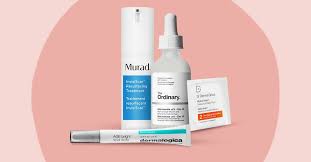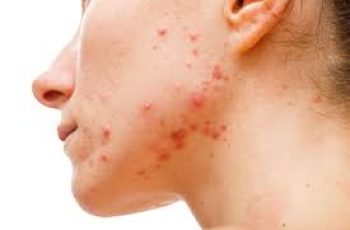
Best Skincare Products for Acne – Dermatologist-Approved Reviews
Are you tired of breakouts and confused by all the acne products out there? As a dermatologist with 25 years of experience, I’ve helped thousands of patients manage acne with science-backed skincare.
Acne isn’t just about pimples. It often comes with redness, irritation, dark spots, sensitivity, and sometimes dry or oily skin. That’s why a customized skincare routine is essential to get lasting results.
In this article, I’ll review the acne products I trust and use in my dermatology practice. I’ll also explain how each product works, how to choose the right one for your skin type, and how to use them effectively.
🎯 Start With Your Skin Type
Before choosing any acne product, you need to understand your skin type. Acne can affect oily skin, dry skin, or sensitive skin—and each type responds differently to treatment.
That’s why I recommend taking the Baumann Skin Type® Quiz. It identifies your skin’s hydration level, sensitivity, oil production, and pigmentation risk.
Once you know your skin type, choosing acne products becomes much easier.
💥 Acne Spot Treatments
Got a surprise pimple? Acne spot treatments can shrink it fast—if you choose the right ingredients.
Key Ingredients to Look For:
Salicylic acid – Unclogs pores and reduces redness
Sulfur – Dries up excess oil and soothes skin
Caffeine – Calms inflammation
If you have an acne scab or a pimple that’s not ready to pop, skip physical extraction. Instead, apply a targeted treatment to reduce swelling and help the pimple heal faster.
🧼 Best Acne Cleansers
Cleansing is the foundation of any acne routine. The right cleanser removes oil, dirt, and bacteria without over-drying your skin.
For Oily Skin:
Use a salicylic acid cleanser to exfoliate and clear pores. Salicylic acid also helps reduce oil and blackheads.
For Dry, Acne-Prone Skin:
Try a gentler alpha hydroxy acid (AHA) cleanser. These help exfoliate without irritating dry or sensitive skin.
💧 Moisturizers for Acne-Prone Skin
Yes, even oily or acne-prone skin needs moisturizer! Skipping this step can make acne worse by triggering more oil production.
For Oily Acne-Prone Skin:
Choose a lightweight, oil-free, non-comedogenic moisturizer. These hydrate without clogging pores.
For Dry Acne-Prone Skin:
If you have dryness or are using retinoids, choose a noncomedogenic rich moisturizer that hydrates and soothes.
🌙 Retinol for Acne
Retinol is a vitamin A derivative that speeds up cell turnover and prevents clogged pores. It’s one of the best long-term treatments for acne.
Start with a low-strength formula to avoid irritation. As your skin adjusts, you can increase strength gradually.
Great Beginner Retinols for Acne:
Always apply retinol at night, and wear SPF during the day to protect your skin.
🔬 Benzoyl Peroxide (BP) for Acne
Benzoyl peroxide kills acne-causing bacteria and unclogs pores. It’s a top-choice ingredient for both prevention and treatment.
Benzoyl Peroxide Cleansers:
A good option for dry or sensitive skin because the BP is rinsed off after use. Also effective for body acne, especially on the back.
Benzoyl Peroxide Creams and Lotions:
Leave-on formulas are stronger but can be drying. Use only at night and always follow with a moisturizer.
⚠️ Note: Take the Baumann Skin Type Quiz before using BP if your skin is dry or sensitive—it can cause peeling or redness.
🌞 Best Sunscreens for Acne-Prone Skin
Sunscreen is essential when treating acne. UV rays can worsen inflammation, delay healing, and darken acne scars.
Use only non-comedogenic sunscreens that won’t clog pores. Here are dermatologist-recommended options:
Top Picks:
EltaMD UV Clear SPF 46 – Zinc oxide + niacinamide soothe acne
La Roche-Posay Anthelios Clear Skin SPF 60 – Oil-absorbing and calming
Alastin HydraTint SPF 36 – Tinted, hydrating, antioxidant-rich
SkinCeuticals Physical Fusion SPF 50 – Lightweight mineral with redness control
PCA Skin Weightless Protection SPF – Ultra-light, calming, and hydrating
Choosing Sunscreen Based on Skin Tone and Needs:
Tinted Chemical Sunscreens (for darker skin or melasma):
Untinted Chemical Sunscreens (for light skin or men):
Tinted Mineral Sunscreens (for chemical-free needs or melasma):
Untinted Mineral Sunscreens (for sensitive or fair skin):
🌿 Microbiome-Friendly Acne Products
Your skin is home to billions of microorganisms. When this microbiome becomes unbalanced, acne can flare up.
Microbiome Science and Acne:
C. acnes can trigger inflammation when overgrown
Malassezia fungus may also worsen breakouts
Antibiotics and isotretinoin reduce harmful bacteria but also shift your microbial balance
Using products that support a healthy microbiome may help calm and prevent acne.
Recommended Microbiome-Stabilizing Product:
Revision DEJ Daily Boosting Serum – Contains postbiotics and ferments to support microbiome diversity, reduce inflammation, and improve skin resilience.
🌙 Special Pick: Night Cream for Menopausal Acne
For menopausal women with dry, acne-prone skin, try:
Meder Circa Night Cream – Contains:
Soy to boost collagen
Probiotic Sirtalice® and Metabiotic Ice-Awake® to firm and restore
Shea butter and panthenol for deep hydration
Perfect for women using retinoids who need barrier support and collagen stimulation.
🧪 How Acne Ingredients Work
Understanding how active ingredients work helps you build an effective skincare routine. Here’s a breakdown of the top acne-fighting compounds:
✔ Benzoyl Peroxide
Kills acne bacteria deep in the pores
Removes dead skin cells through oxidation
✔ Salicylic Acid
Exfoliates inside pores
Reduces inflammation and redness
✔ Retinoids (Adapalene, Tretinoin)
Increases skin turnover
Prevents dead cells from clogging pores
Stimulates collagen
✔ Azelaic Acid
Reduces bacteria and inflammation
Fades post-acne pigmentation
✔ Niacinamide
Controls oil production
Reduces redness and calms the skin
Using these consistently—often over 4 to 8 weeks—gives the best results.
🧴 How to Build Your Acne Skincare Routine
A complete acne skincare routine should include:
Cleanser – Choose based on oiliness and sensitivity
Treatment – Use leave-on serums with retinoids, salicylic acid, or azelaic acid
Moisturizer – Always non-comedogenic and suited to your skin hydration level
Sunscreen (AM) – Broad-spectrum, oil-free SPF daily
Spot Treatment (PM) – Apply directly to blemishes when needed
📋 Dermatologist Tips for Managing Acne
Here are my most important acne tips, based on decades of patient experience:
Avoid picking or popping pimples. This can lead to scarring and spread bacteria.
Use non-comedogenic makeup and sunscreen. Check the label!
Watch your diet. Limit sugary foods and dairy, which may worsen acne.
Manage stress. High cortisol increases oil production. Try yoga, walking, or meditation.
See a dermatologist if OTC products don’t work after 8 weeks. You may need prescription treatments.
🛒 Shop Smart for Acne Products
You don’t have to try everything on the shelf. With the right information, you can find what works—and skip what doesn’t.
✔ Know your skin type
✔ Choose products with proven ingredients
✔ Avoid pore-clogging oils
✔ Be patient and consistent
Next Steps
Ready to find the perfect acne products for your skin?
🔹 Take the Baumann Skin Type Quiz
🔹 Build a custom skincare routine
🔹 Use dermatologist-tested products
🔹 Follow the steps daily for real results
Acne is treatable. With science-backed ingredients and expert guidance, you can take control of your skin and see visible improvement in weeks—not years.


